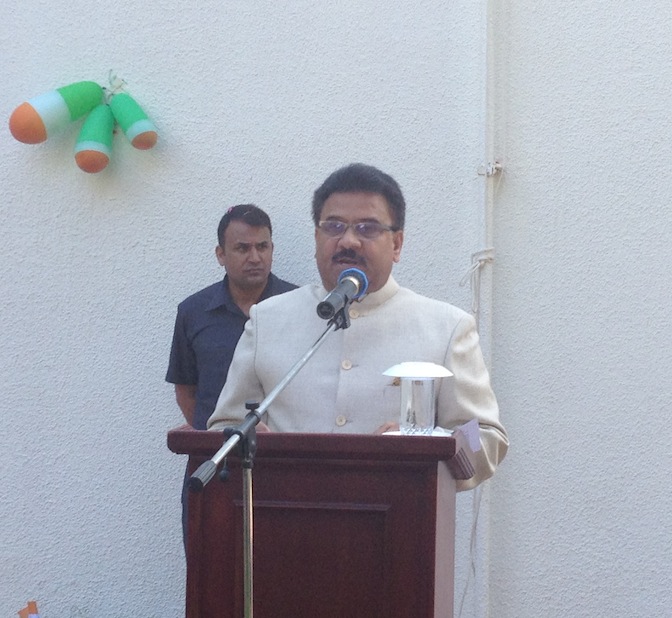By Michel Cousins.
Tripoli, 14 August 2013:
Former Oil Minister Ali Tarhuni this evening called on for a crisis government to be formed . . .[restrict]to focus entirely on security. He also called on Congress to adopt the 1963 constitution as a temporary measure under which the country should be run while the Constitutional Committee took its time to work out a new one.
Leading a group of political activists, academics, tribal leaders and NGO heads who have joined together to form the National Initiative for Saving Libya, he told a press conference at Tripoli’s Mahari Radisson Blu Hotel that the unless security was established throughout the country, it risked becoming a failed state.
“We’re getting into a dangerous area now” he later told the Libya Herald.
The Initative also called for all political parties to suspend activities, for them and other organisations “to search for solutions to the problems facing Libya, using peaceful means rather than violence”, and “in light of the poor performance of the General National Congress” for its members “to respond to the legitimate needs of the people rather than special interests” by outlining a roadmap to solve Libya’s present security issues.
Enough was enough, Tarhouni told the meeting. There was a crisis and Congress to face up to the emergency. “We must have a crisis team running the government,” he insisted. “Without it, we will have no safety.”
Prime Minister Ali Zeidan’s move ten days ago of having daily cabinet meetings dealing with security and attended by a key selection of ministers was not enough, he said. The entire government had to be focused on security.
Rebuilding the army was key to Libya’s future, he believed. At present, there was no functioning Libyan army which could protect the state and its citizens. Three billion dinars has been spent on the army, he said, but “Where is the army?” in the current crisis, he asked. The reality was that no state could be established without a functioning army, functioning police, proper border guards and, in the case of a petroleum economy, proper petroleum forces to guard the country’s source of wealth.
It would take a year to build a new army. But without it, “Libya will not be stable” – and without stability, issues such as rights for the Amazigh and other minorities or whether or not Libya should be a federal state (he said he was not in favour) would not see the light of day. Only once there was security could these and other ideas be discussed calmly.
Explaining the call for the 1963 Constitution, there was no way, Tarhouni told the Libya Herald, that the 60-member Constitutional Commission could produce a new Constitition by February next year, when Congress’s remit ends under the 2011 Constitutional Declaration by the former National Transitional Council.
Better for Congress, he said, to adopt as a temporary measure the 1951 Constitution as amended in 1963, with the monarchy removed from the text and replaced by a presidency. That way, local elections could be held and then, in February, national elections to a parliament which would act as the legislature until a new constitution was devised and agreed.
However, Tarhouni, whose National Centrist Party failed to make an impression in last year’s Congressional elections, taking just two seats, was dubious whether all members of Congress were that concerned about the present security situation. Some members of Congress, he said were “comfortable with the way things are”. Because of it, he said, they imagined that the life of Congress would be extended after February. [/restrict]







